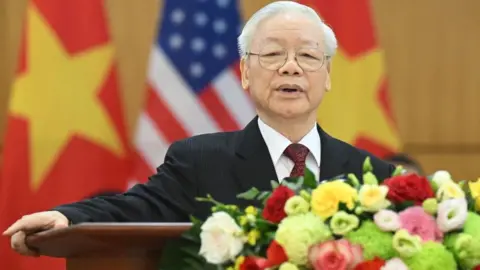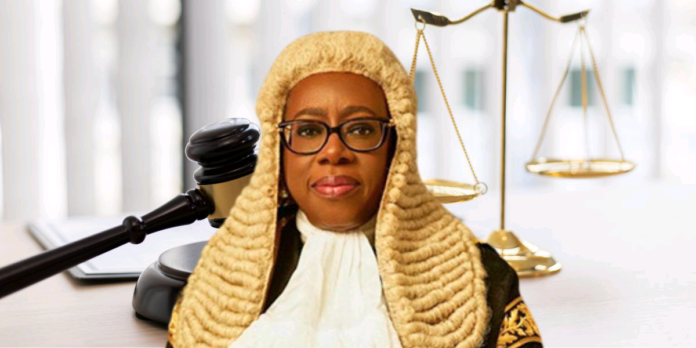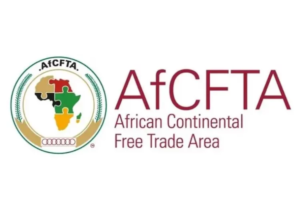In a historic trial held in Vietnam, one of the most significant bank fraud cases globally culminated in the sentencing of a 67-year-old Vietnamese property developer to death on Thursday. This verdict, delivered behind the grand yellow portico of the colonial-era courthouse in Ho Chi Minh City, marks a rare occurrence as she becomes one of the few women in Vietnam sentenced to death for a white-collar crime.
The severity of the sentence reflects the staggering magnitude of the fraud. Truong My Lan was found guilty of orchestrating a scheme that involved obtaining $44 billion in loans from the Saigon Commercial Bank over an 11-year period. The court’s ruling demands the return of $27 billion, although prosecutors acknowledge the likelihood of recovering this sum is slim. Some speculate that the death penalty serves as a means to pressure her into assisting authorities in locating the missing billions.
Uncharacteristically transparent, the communist authorities provided extensive details to the media about the case. Approximately 2,700 individuals were summoned to testify, and the proceedings involved 10 state prosecutors and around 200 lawyers.
The trial unfolded with a staggering volume of evidence contained in 104 boxes, weighing a total of six tonnes. Alongside Truong My Lan, eighty-five defendants faced trial, with Lan herself denying the charges brought against her.
“This trial is unprecedented in the communist era, and nothing of this scale has been witnessed before,” remarked David Brown, a retired US State Department official with extensive experience in Vietnam.
The proceedings represent a dramatic apex in the “Blazing Furnaces” anti-corruption campaign spearheaded by Communist Party Secretary-General Nguyen Phu Trong. Nguyen Phu Trong, a staunch conservative ideologue well-versed in Marxist theory, views uncontrolled corruption as a significant threat to the Communist Party’s monopoly on power. He launched the campaign in earnest in 2016 after strategically outmaneuvering the pro-business prime minister at the time to secure his position as party leader.

The anti-corruption campaign has already seen the resignations of two presidents and two deputy prime ministers, alongside the disciplining or imprisonment of hundreds of officials. Now, Truong My Lan, one of the country’s wealthiest women, has joined the ranks of those held accountable.
Truong My Lan hails from a Sino-Vietnamese family in Ho Chi Minh City, previously known as Saigon. This city has historically been the economic powerhouse of Vietnam, tracing its roots back to the days when it served as the capital of anti-communist South Vietnam and boasted a sizable ethnic Chinese community.
Lan’s journey began at a market stall, where she sold cosmetics alongside her mother. With the onset of Vietnam’s economic reform era, known as Doi Moi, in 1986, she ventured into real estate and land acquisitions. By the 1990s, Lan had amassed an impressive portfolio of hotels and restaurants.
Although Vietnam is often recognized globally for its rapidly expanding manufacturing sector, positioned as an alternative supply chain to China, much of the country’s wealth was accumulated through property development and speculation.
In Vietnam, all land is officially state-owned, and acquiring access to it often hinges on personal relationships with state officials. As the economy expanded, corruption became more pervasive and entrenched within the system.



























